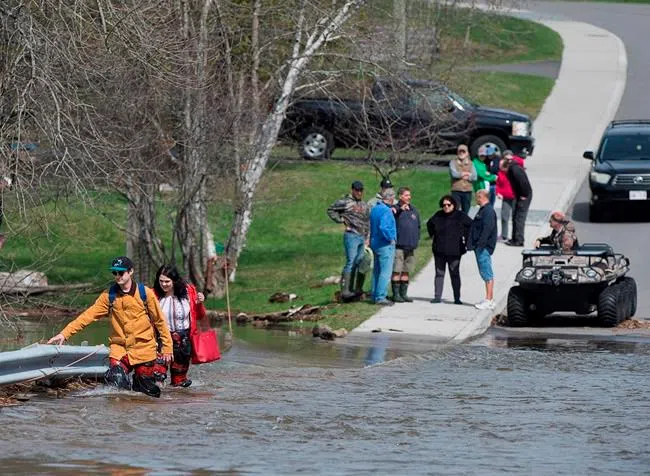
Damage becoming clear amid historic flood: ‘Oh my God, your heart is broken’
SAINT JOHN, N.B. — For 48 years, Jerry McFarland’s rustic cottage on New Brunswick’s Grand Lake was a cherished refuge for family and friends, where precious summertime memories were carefully recorded in well-worn journals.
Today, McFarland’s cottage is in ruins, shoved off its foundation and torn apart on the weekend by rising floodwaters.
“It was a million-dollar property, to me,” the 84-year-old Fredericton resident said Monday. “It’s just a pile of rubbish there now … with the thrashing of the water.”
With the flooding in central New Brunswick finally stabilizing after reaching record levels on the weekend, the extent of damage caused in areas cut off by rising water is starting to become clear.
